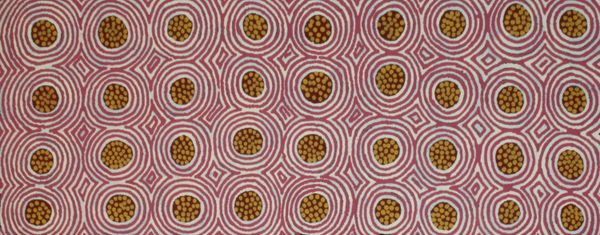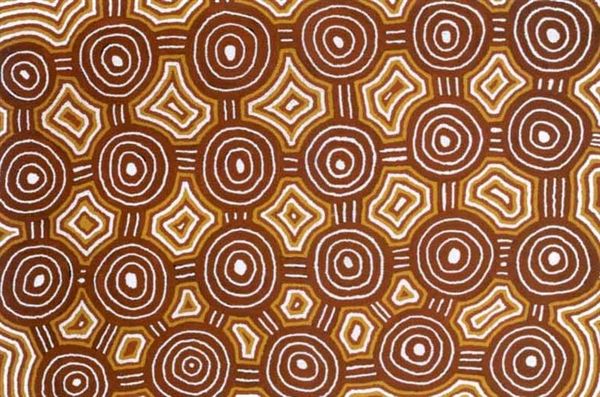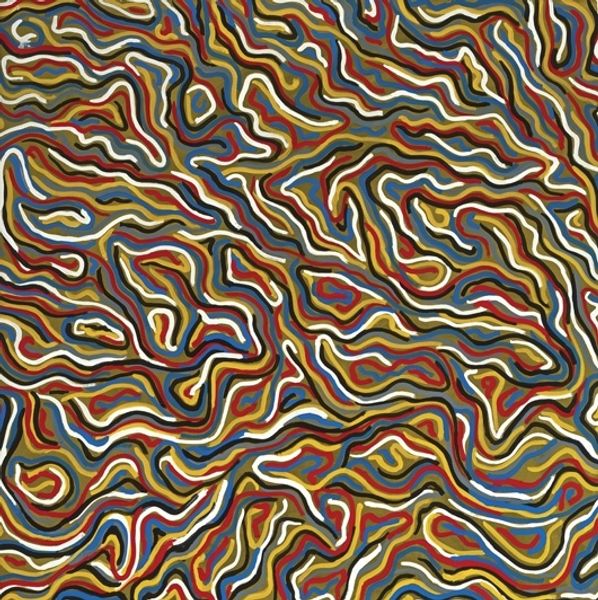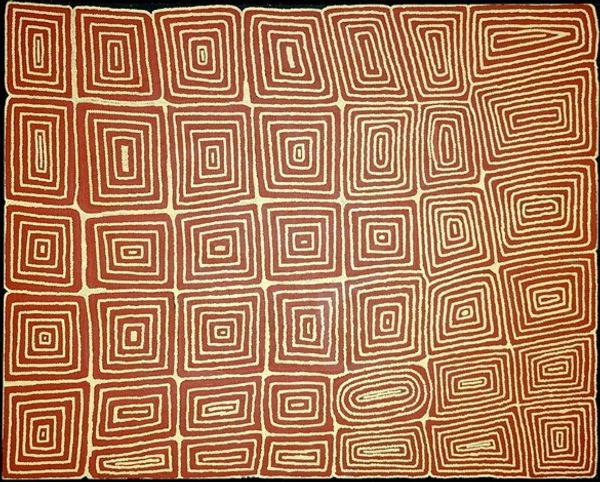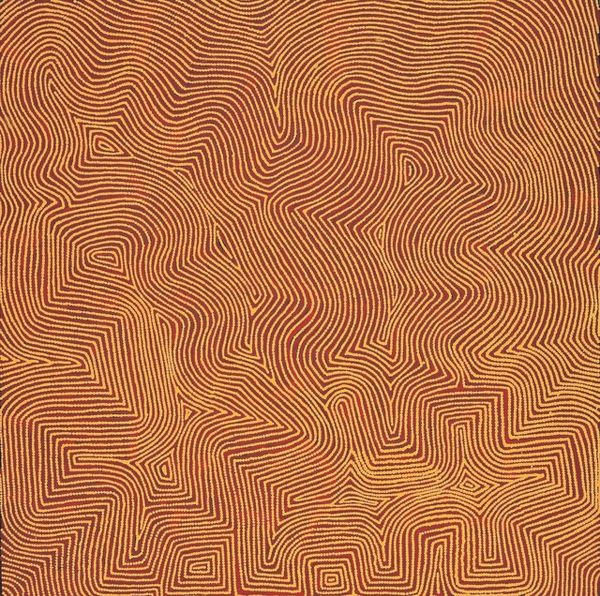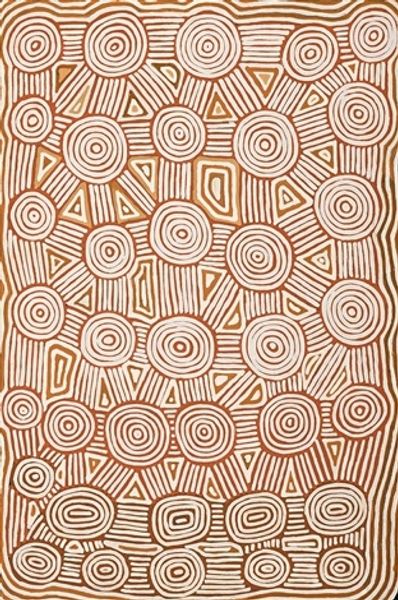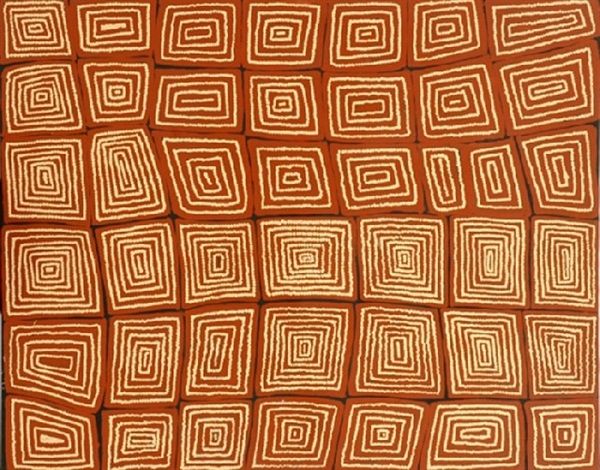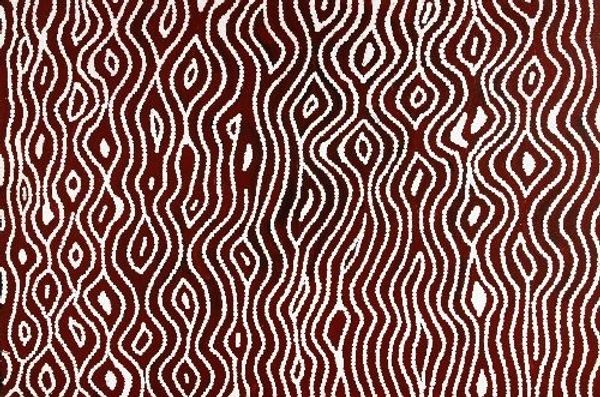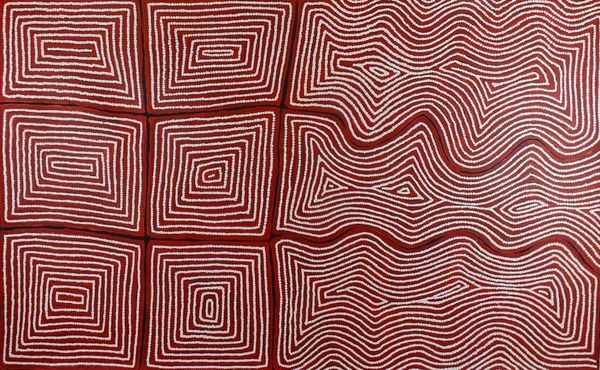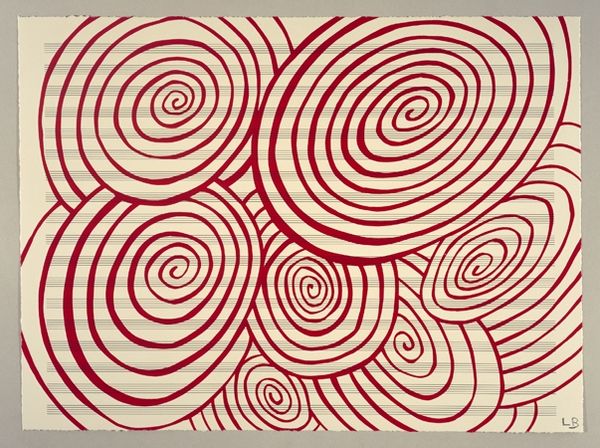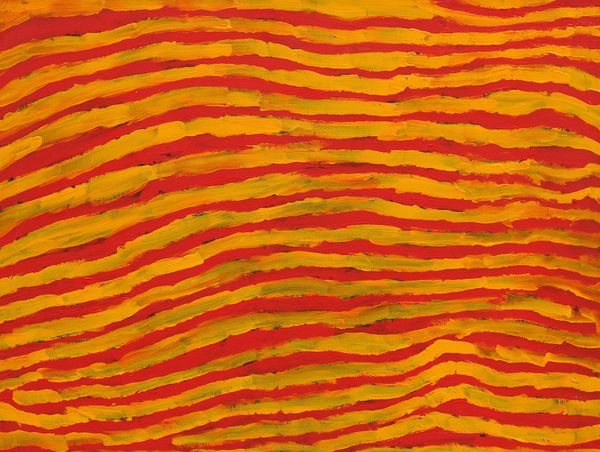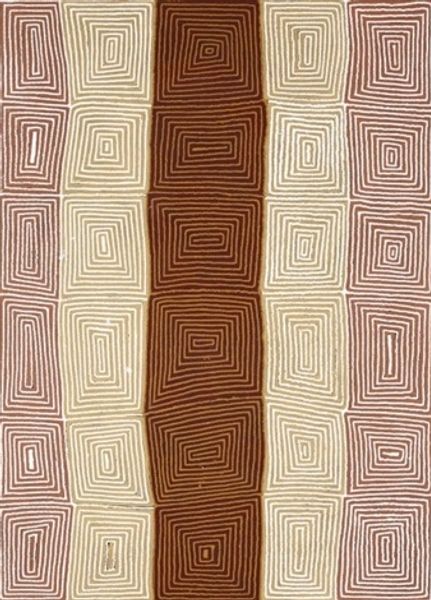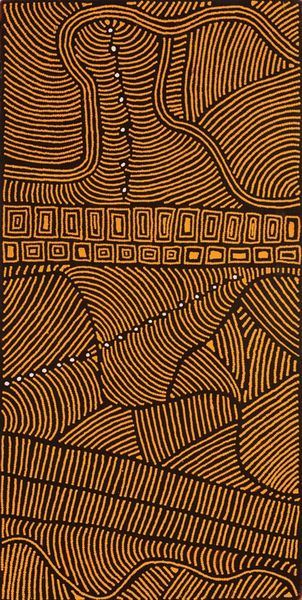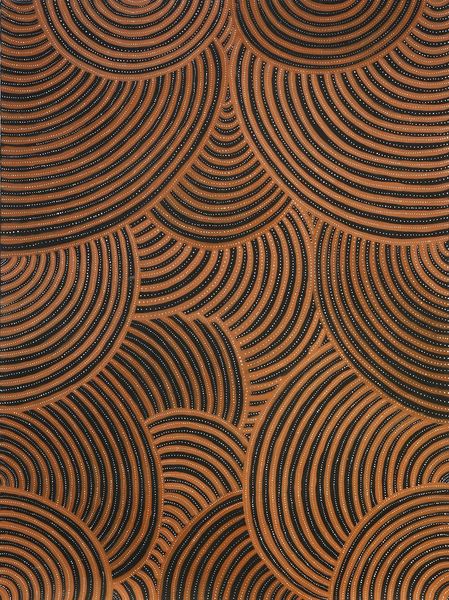
painting, acrylic-paint
#
natural stone pattern
#
naturalistic pattern
#
painting
#
acrylic-paint
#
geometric pattern
#
abstract pattern
#
organic pattern
#
repetition of pattern
#
vertical pattern
#
abstraction
#
line
#
pattern repetition
#
layered pattern
#
combined pattern
Copyright: Warlimpirrnga Tjapaltjarri,Fair Use
Editor: We’re looking at Warlimpirrnga Tjapaltjarri's "Fire Dreaming at Wilkinkarra," painted in 1996 with acrylics. It's striking how the repeated patterns create such a vibrant, almost pulsating surface. What do you see in this piece? Curator: I see layers upon layers of cultural memory. The concentric circles, to me, immediately evoke the idea of gathering places, of community. And the fire element speaks to transformation, renewal, the cyclical nature of existence within Indigenous Australian culture. Do you notice how the lines connecting these circles aren't perfectly straight? Editor: Yes, they’re quite fluid and organic, almost like rivers or pathways. Curator: Precisely. They symbolize the journeys, both physical and spiritual, that connect people to the land and to each other. The painting then becomes a map, not just of a place, but of a people's history and cosmology. Wilkinkarra, the location, acts as more than just a point of reference; it embodies ancestral significance and enduring cultural identity. The warm earthy tones, echoing the desert landscape, speak to a deep connection. Editor: I see what you mean. The imperfections in the lines and shapes, while abstract, also give it such a human feel, linking to shared history. Curator: It's fascinating how these seemingly simple patterns carry such a profound weight of cultural meaning, isn't it? They reflect a continuous narrative that resonates across generations. It shows us how deeply embedded symbolism is in this landscape. Editor: Absolutely. I’ll never look at abstract patterns the same way again. Thanks, this insight will impact how I interpret and communicate about works going forward.
Comments
No comments
Be the first to comment and join the conversation on the ultimate creative platform.
